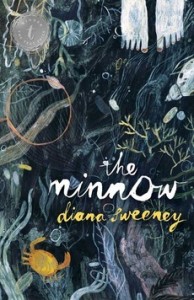 Some time ago, I heard/read that what defines YA apart from adult fiction is the notion of ‘hope’. (I need to research where this was…). And having just finished ‘The Boy Who Steals Houses’ I have a clear example of this idea.
Some time ago, I heard/read that what defines YA apart from adult fiction is the notion of ‘hope’. (I need to research where this was…). And having just finished ‘The Boy Who Steals Houses’ I have a clear example of this idea.
How can a child from an abusive or negligent family relationship develop any hope for the future? If your basic needs of food shelter and love are not being met, what impact does that have on your life?
C.G.Drews does not shy away from difficult family relationships. Her previous book, ‘A Thousand Perfect Notes‘ dealt with an abusive mother of a talented musician, as he struggles to find his place in the world – while pressured to meet his mother’s expectations. In ‘The Boy Who Steals Houses’, Sam has to deal with responsibility for his older autistic brother in the absence of parental care. (Note, in ATPN Beck also looks after his younger sister…).
There are many things Sam has to deal with – an abusive father, an absent mother, an autistic brother, his own anger issues – but all he longs for is a normal family. But what is that? And who can you trust?
Avery seems to think Vi is trustworthy. Sam isn’t so sure.
Moxie trusts Sam, even though he is secretly living in her mother’s study. And her family doesn’t know.
Sam doesn’t trust Mr De Lainey enough to think he will not turn him into the police. But where else can he go?
Where do you go, when all your options are running out, and your past is catching up with you?
With an intriguing title and characters with quirky natures, ‘The Boy Who Steal Houses’ IS a hopeful tale. The contrasts between Sam’s and Moxie’s families are great, but they each face their own difficulties. There are some playful characters to be enjoyed, along with instances where poor decisions are made – will things work out in the end for Sam and his brother? And is Moxie’s life as idyllic as Sam seems to think? How do you deal with not only being a *glass child, but also one who is homeless?
‘The Boy Who Steal Houses’ is one of the YA books on the 2020 CBCA Shortlist – a worthy nominee. If you want to know what inspired the story, read from the C.G. Drew’s Author Q&A where she gives some really playful and insightful answers. Lots of advice too for budding writers!
# Should all YA books have an element of hope?
## Do you always expect a happy ending?
### Who is your favourite character in this story? (Then read what C.G. Drews says herself!)
*Glass child – “… Glass children are children who are growing up in a home with a sibling who takes up a disproportionate amount of parental energy.” (See Urban dictionary definition for more detail.)
Edit: ‘the Boy who Steals Houses’ is an Honour Book in this year’s CBCA Awards. Congrats!
 Beck’s life has always been routine – music practice – school – music practice – nothing more – nothing less. No time for friends or other activities – the Maestro wouldn’t allow it.
Beck’s life has always been routine – music practice – school – music practice – nothing more – nothing less. No time for friends or other activities – the Maestro wouldn’t allow it.